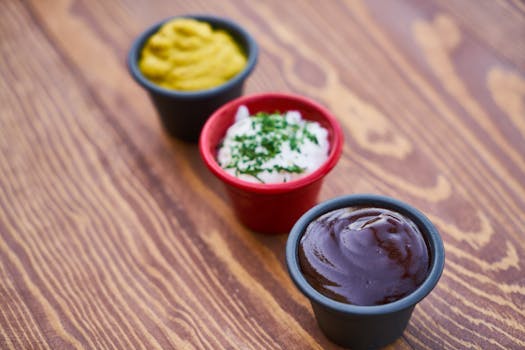Sharing a snack with your furry friend can be tempting, especially when those big puppy eyes are staring up at you. But before you hand over a handful of Walkers Crisps to your dog, it’s important to consider the potential health risks. While crisps may seem harmless, the salt and seasonings in these snacks can be dangerous for dogs. Let’s dive into why Walkers Crisps are not a good choice for your canine companion and what you should do if your dog gets into a bag of crisps.
🧂 Why Is Salt Dangerous for Dogs?
Salt is a common ingredient in many human foods, including Walkers Crisps. While a small amount of sodium is essential for your dog’s body to function properly, too much salt can lead to serious health issues. Dogs are far more sensitive to salt than humans, and even a small portion of salty snacks can have adverse effects.
When dogs consume too much salt, they risk developing a condition called salt poisoning, also known as hypernatremia. This occurs when the sodium levels in their blood rise too high, causing dehydration and other complications. Symptoms of salt poisoning can escalate quickly, so it’s essential to recognize the warning signs early.
- Excessive thirst
- Frequent urination
- Vomiting or diarrhea
- Weakness or lethargy
- Seizures in severe cases
If you suspect your dog has consumed too much salt, contact your vet immediately. Early intervention can prevent serious complications.
🌶️ Are Seasonings in Walkers Crisps Harmful?
Walkers Crisps come in a variety of flavors, many of which contain seasonings that are unsafe for dogs. Ingredients like onion powder, garlic powder, and artificial flavorings can be toxic to dogs, even in small amounts. These seasonings can irritate your dog’s digestive system and, in some cases, cause more serious health problems.
For example, onions and garlic belong to the allium family and contain compounds that can damage your dog’s red blood cells, leading to anemia. Symptoms of onion or garlic toxicity include:
- Weakness
- Pale gums
- Increased heart rate
- Difficulty breathing
Even flavors that seem harmless, like ready salted or plain crisps, often contain preservatives and other additives that are not suitable for dogs. It’s always best to avoid giving your dog any flavored snacks meant for humans.
🍟 What Happens If My Dog Eats Walkers Crisps?
If your dog accidentally eats a small number of Walkers Crisps, they may experience mild digestive upset, such as vomiting or diarrhea. However, if they consume a larger quantity, the risks increase significantly. Salt poisoning, dehydration, and toxicity from seasonings are all potential concerns.
Here’s what to do if your dog eats crisps:
- Remove the crisps and packaging to prevent further consumption.
- Offer your dog fresh water to help flush out excess salt.
- Monitor your dog for symptoms of salt poisoning or digestive upset.
- Contact your vet if your dog shows any unusual behavior or symptoms.
In most cases, a single crisp or two won’t cause serious harm, but it’s always better to err on the side of caution. Prevention is key when it comes to your dog’s health.
🐕 Safe Alternatives to Walkers Crisps
Instead of sharing crisps with your dog, consider offering them a healthy, dog-friendly treat. Many fruits and vegetables make excellent snacks for dogs and are packed with nutrients. Here are a few safe options:
- Carrot sticks
- Apple slices (without seeds)
- Blueberries
- Green beans
- Plain, unsalted popcorn
Always introduce new foods to your dog’s diet gradually and in moderation. Some dogs have sensitive stomachs, so it’s important to watch for any adverse reactions.
💡 How to Prevent Your Dog from Eating Crisps
Dogs are curious creatures, and their love for food can sometimes get them into trouble. To prevent your dog from eating Walkers Crisps or other human snacks, follow these tips:
- Keep crisps and other snacks stored in a secure, dog-proof location.
- Dispose of empty crisp packets in a sealed trash can to prevent your dog from scavenging.
- Train your dog to follow commands like “leave it” or “drop it” to avoid accidental consumption.
Being proactive can help you avoid unnecessary trips to the vet and keep your dog safe and healthy.
FAQs
Can dogs eat plain Walkers Crisps?
Even plain crisps contain high levels of salt and are not recommended for dogs. It’s best to avoid giving them any type of crisps.
What should I do if my dog eats a lot of crisps?
Remove the crisps, provide fresh water, and monitor your dog for symptoms like vomiting, diarrhea, or lethargy. Contact your vet if you’re concerned.
Are there any crisps that are safe for dogs?
No, crisps are not a healthy snack for dogs due to their high salt and fat content. Stick to dog-friendly treats instead.
How much salt is too much for dogs?
The safe daily sodium intake for dogs varies depending on their size and weight. However, even small amounts of salty snacks can be harmful, so it’s best to avoid them altogether.
References
Book a $49 online vet consultation at https://www.dialavet.com for fast, expert advice.






















